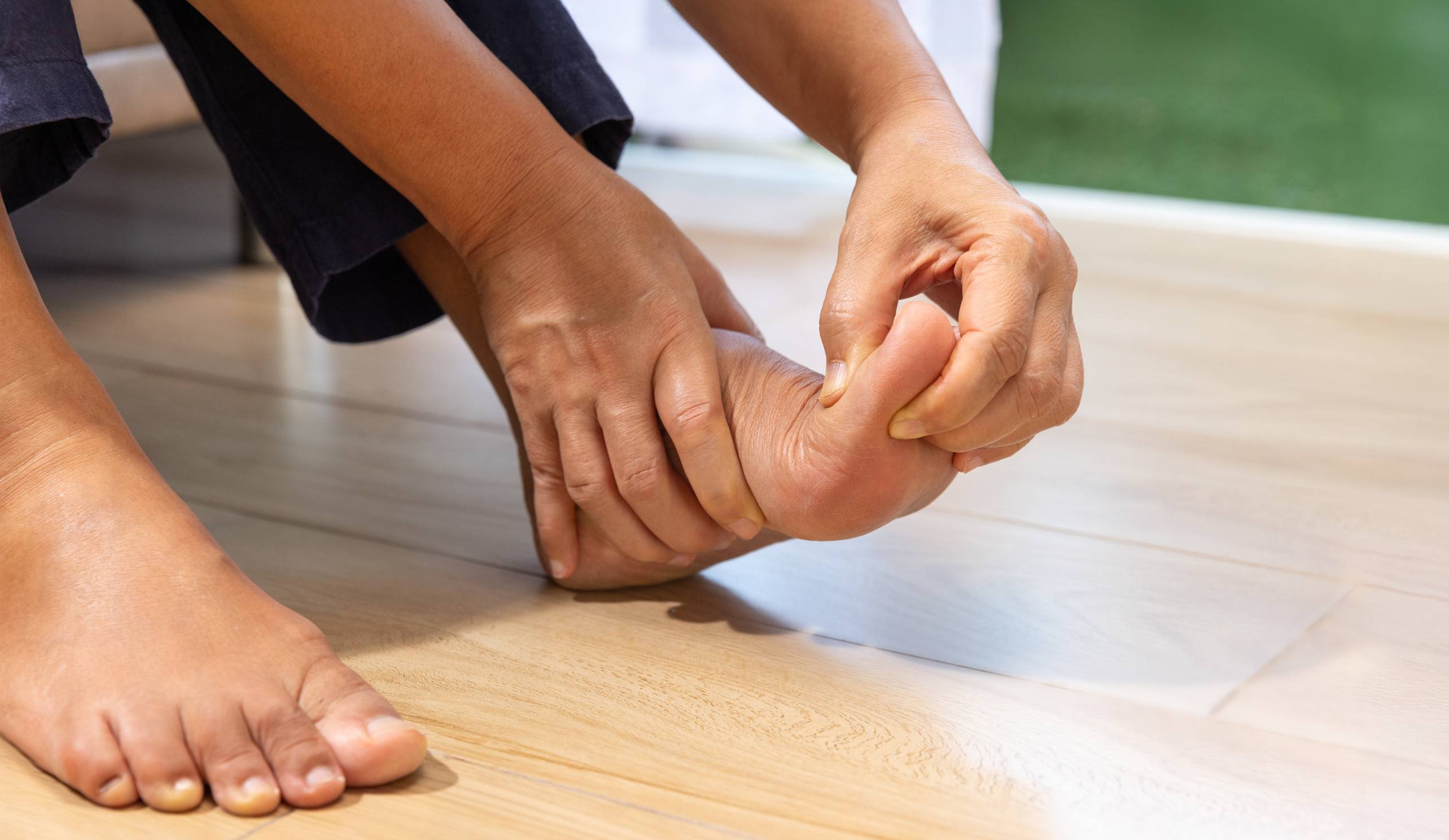Plantar Fasciitis: Heel Pain Isn’t “Just Soreness”
If you wake up with stabbing heel pain you may be dealing with plantar fasciitis.

If you wake up and feel stabbing heel pain on your first few steps, or your feet ache after standing all day, you may be dealing with plantar fasciitis. It’s one of the most common causes of chronic foot pain, and it’s a condition that rarely improves on its own.
Your plantar fascia is a thick band of tissue that supports the arch of your foot like a shock absorber. When it becomes inflamed or overstretched, every step becomes painful and your whole body begins to compensate.
What’s Really Happening in Plantar Fasciitis
The plantar fascia runs from your heel bone to your toes. Its job is to support the arch, stabilize your foot, and absorb impact when you walk or run.
Problems arise when that tissue becomes overwhelmed by:
- Poor foot mechanics or collapsed arches
- Tight calves or hamstrings
- Standing for long periods
- Improper footwear or worn-out shoes
- Excess weight or sudden activity increases
- Misalignment in the ankles, knees, hips, or low back
As the fascia becomes irritated, tiny micro-tears develop, creating:
- Sharp heel pain with first steps in the morning
- Pain after long periods of standing or walking
- Tenderness in the arch of the foot
- Tightness in calves and Achilles tendon
- Pain that worsens by the end of the day
Why It Gets Worse If You Ignore It
Plantar fasciitis isn’t just a “foot problem”. It’s a biomechanics problem.
When the fascia is inflamed, your gait changes. This can trigger:
- Knee strain
- Hip tightness
- Low back pain
- Compensatory posture issues
Left untreated, the tissue becomes more rigid, more inflamed, and more prone to reinjury. In chronic cases, tiny calcium deposits can form, leading to heel spurs and long-term pain.
How Active Family Chiropractic & Acupuncture Helps
We look beyond the foot to understand the full chain of movement.
Your care may include:
1. Chiropractic Adjustments
Misalignments in the feet, ankles, knees, pelvis, or lumbar spine alter your gait and overload the fascia.
Adjustments restore proper biomechanics so every step becomes more efficient and less painful.
2. Soft Tissue + Mobility Work
We help release tension in tight muscles that pull on the fascia, including:
- Calves
- Achilles tendon
- Plantar fascia itself
This reduces strain and improves flexibility.
3. Rehab & Arch Support
We use targeted rehab exercises to strengthen the muscles that support the arch and stabilize the foot.
This helps correct the underlying problem, not just mask symptoms.
When indicated, we may recommend custom orthotics to support proper foot posture.
4. Acupuncture (Select Clinics)
Acupuncture can rapidly reduce inflammation, improve circulation in the feet, and calm the nerve pain associated with chronic plantar fasciitis.
When to Seek Care
If your heel or arch pain has been lingering for more than a few days, or if mornings feel like “walking on glass,” the problem is already becoming chronic.
Early care stops the inflammation cycle and prevents long-term breakdown of the plantar fascia.
Don’t Let Foot Pain Slow You Down
Plantar fasciitis can take months or years to heal if the underlying issues aren’t corrected, but with proper chiropractic, rehab, and supportive care, most patients see improvement quickly.
Don’t wait until every step hurts. Call today to schedule your plantar fasciitis and movement evaluation:
- Grand Island: (308) 384-4955
- Hastings: (402) 249-5500
- Kearney: (308) 222-4400
- Columbus: (402) 265-6800
.png)


.jpg)